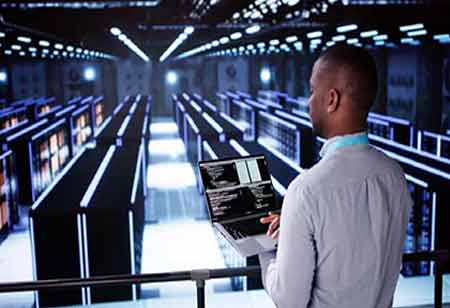THANK YOU FOR SUBSCRIBING

Sustainability In Construction - The Startups Tackling The Challenge
Max Blanshard, VC Investment Associate, 2150

 Max Blanshard, VC Investment Associate, 2150
Max Blanshard, VC Investment Associate, 2150The construction industry is one of the most significant contributors to carbon emissions globally. According to the World Green Building Council, buildings are currently responsible for 39% of global energy-related carbon emissions. Currently, only one percent of the building stock is renovated each year, but almost 75 percent of the building stock is energy inefficient. Construction also consumes vast amounts of natural resources such as water, making it critical to address sustain - ability in this industry.
Recent regulatory requirements and growing tailwinds around environmental concerns are pushing the construction industry to become sustainable. For example, legislative frameworks such as the energy performance of buildings directive and energy efficiency directive were introduced in the EU to promote the energy efficiency of buildings. The directives promote policies that will help achieve a high energy-efficient and decarbonized building stock by 2050 and encourage builders to adopt sustainable building practices, new technologies, and alternative materials that are more energyefficient.
Similarly, the UK government has introduced the Green Deal to incentivize property owners to invest in energy-saving measures. The scheme provides financing to property owners to install insulation, energy-efficient boilers, and other energy saving measures. The aim is to improve the energy efficiency of buildings and reduce carbon emissions. Other countries, such as Canada and the US, have also introduced similar policies.
Many city and local governments have also introduced regulations that require builders to use materials that have a low environmental impact, such as recycled or local-sourced materials.
The startup communities are now rising to the challenge, developing innovative solutions that help the sector reduce its carbon footprint and promote sustainability across the entire construction chain. At 2150, we are a venture capital firm that invests in companies supporting developers to build more planet friendly. Our investment thesis is based on the belief that sustainable construction is the way forward for the industry. We are excited to be at the forefront of investing in startups that are reshaping the way we build.
Here are some of the startups in our portfolio that are making significant impacts:
Workflow Tech:
Nodes and Links is a construction project management platform that helps plan and coordinate infrastructure projects so they run on time. Their software uses machine learning algorithms to predict the completion time for each task, improving project timelines, and reducing the environmental impact of delays.
“The startup communities are now rising to the challenge, developing innovative solutions that help the sector reduce its carbon footprint and promote sustainability across the entire construction chain”
Disperse is another workflow tech startup that provides construction managers with real-time data on the progress of construction projects. This data helps reduce waste and improve efficiency, leading to significant cost savings and sustainability benefits.
Cement & Concrete:
Carbon Cure is a concrete technology company that injects CO2 into the concrete mixing process in order to reduce the carbon footprint of concrete production. Their technology is installed at concrete plants and CO2 is used to cure the concrete, making it stronger and more durable while also reducing the amount of cement required.
Biomason is another startup that is revolutionizing the cement and concrete industry by developing a sustainable alternative to traditional concrete. Their innovative product is made from bacteria, which bind sand particles together to create tiles that are durable and eco-friendly.
Planet-Friendly Building/Construction Site:
Aeroseal is a company that specializes in improving the efficiency of both building envelopes and HVAC systems. Their technology seals leak in ductwork and reduce air leakage in buildings, resulting in significant energy savings and a lower carbon footprint.
Ampd focuses on tackling pollution directly on construction sites. Their technology reduces air pollution and noise on construction sites by using electric and hybrid equipment. This approach reduces carbon emissions and improves the health and well-being of workers.
NatureMetrics is a startup that uses DNA sequencing to efficiently measure biodiversity at construction and infrastructure sites. Their technology helps builders identify and protect biodiversity hotspots, reducing the environmental impact of construction projects.
These startups are just a few examples of how innovative technology can help the carbon-free transition of the construction industry. By investing in and supporting these companies, we can drive positive change across the industry and work towards a more sustainable future.
Read Also
Where Safety Really Lives: Between the Plan and the Jobsite
Accelerating the Shift Toward Data-Led Construction Excellence
Building Projects Through People, Planning and Culture
Innovating the Future of Construction: Insights From Power Design's Leadership
Advancing Construction with Technology and Care
Technology as a Strategic Advantage in Preconstruction

 Copyright © 2026 All Rights Reserved | by:
Copyright © 2026 All Rights Reserved | by: Construction Tech Review
| Subscribe | About us | Sitemap| Editorial Policy| Feedback Policy










